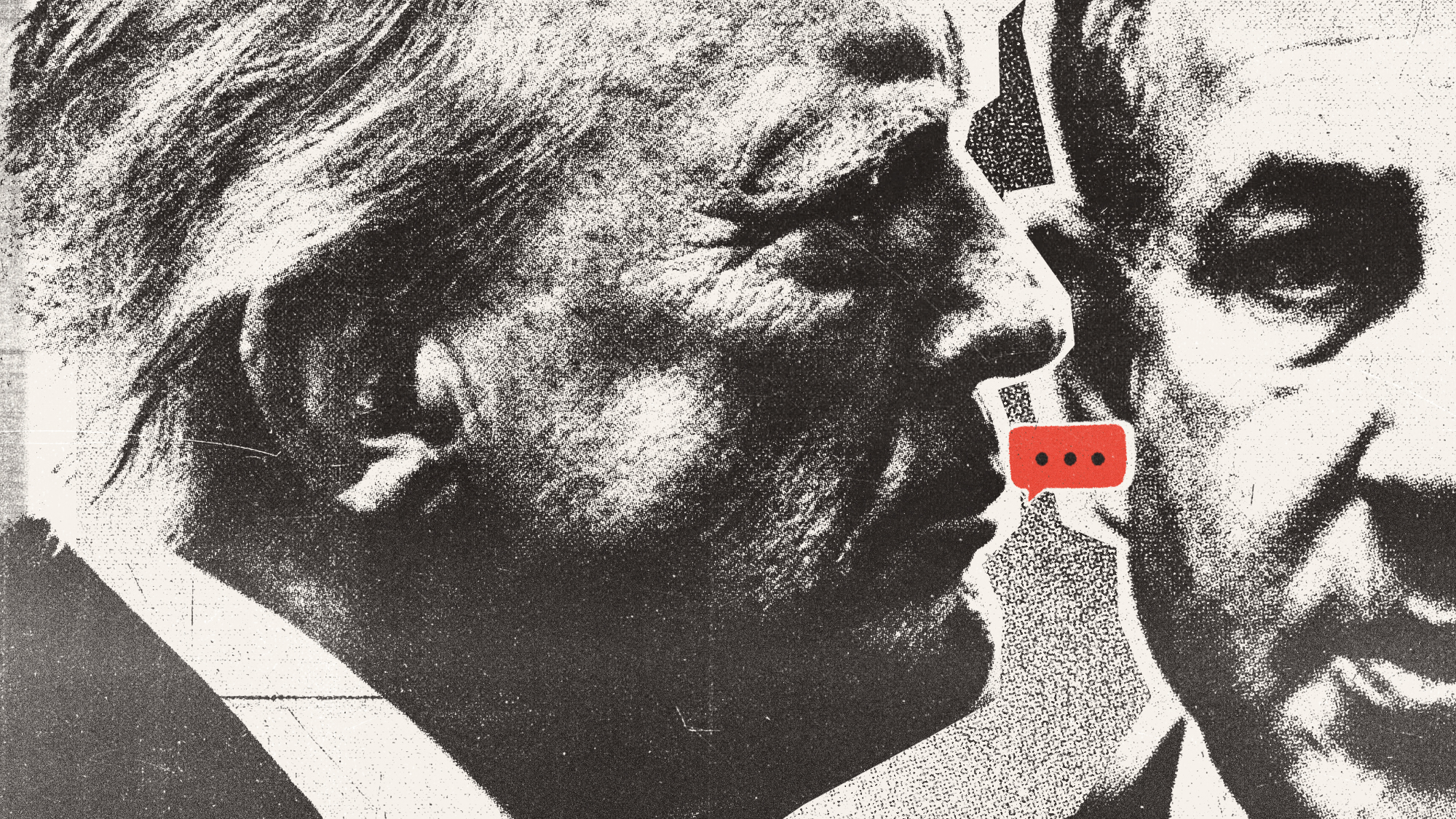Can Trump bully Netanyahu into Gaza peace?
The Israeli leader was ‘strong-armed’ into new peace deal


A free daily email with the biggest news stories of the day – and the best features from TheWeek.com
You are now subscribed
Your newsletter sign-up was successful
Israeli leader Benjamin Netanyahu shrugged off the world’s criticisms as he prosecuted his country’s war in Gaza. But with a peace deal possibly at hand, it’s clear there is one person he cannot ignore: President Donald Trump.
Netanyahu was “strong-armed by Trump” into going along with the president’s peace proposal, said The New York Times. While the prime minister presented the potential deal as a joint American-Israeli effort, Trump suggested otherwise to reporters. Netanyahu has “got to be fine” with a deal to end the war, Trump said. “He has no choice.” Netanyahu now has a “delicate balancing act” to perform, said the Times. His political survival depends on “appeasing his far-right coalition partners” who will not approve a deal that lets Hamas survive. At the same time, he knows that fighting Trump “will hurt Netanyahu, not Trump,” said Al-Monitor’s Mazal Mualem.
The draft peace deal offers a pathway, “however vague,” to a future Palestinian state, said the Financial Times. Netanyahu has built a career on his opposition to such a state. But Trump reminded Netanyahu that “Israel was propped up by billions of dollars in U.S. aid.” And the president is eager to bring the war to an end. The “rule of thumb is Donald Trump’s interests come first,” said Michael Oren, Israel’s former ambassador to America.
The Week
Escape your echo chamber. Get the facts behind the news, plus analysis from multiple perspectives.

Sign up for The Week's Free Newsletters
From our morning news briefing to a weekly Good News Newsletter, get the best of The Week delivered directly to your inbox.
From our morning news briefing to a weekly Good News Newsletter, get the best of The Week delivered directly to your inbox.
What did the commentators say?
“Trump is successfully bullying Netanyahu,” Yair Rosenberg said at The Atlantic. If the war is to come to an end, “he’ll need to do more of it.” The prime minister is facing a “mutiny” from far-right members of his coalition government who want to “ethnically cleanse” Gaza and fill it with Israeli settlers. Trump is the “only actor who can provide a counterweight to these radicals.” The president has “incredible leverage” over Netanyahu. “He just needs to use it.”
Netanyahu “consistently placed spokes in the wheels” when the Biden administration pressed him, Amos Harel said at Haaretz. Now he has “concluded that he can no longer block Trump’s moves.” Netanyahu is selling the proposed Gaza deal to his voters as a “tremendous diplomatic achievement” that was possible only because of the “prime minister’s stubbornness.” One key date: The Nobel Peace Prize will be announced October 10. If Trump gets Hamas to free Israeli hostages, “he probably deserves the prize he so covets.”
What next?
Indirect talks between Israel and Hamas began Monday in Egypt, said Axios. Trump “wants to see a deal as soon as possible,” and his team is pushing for “implementation of the deal without delay.” The process has a “really good chance” of producing peace after two years of war, the president said Monday.
Hamas leaders believe Trump “is the only person who can pressure Netanyahu into a deal,” said NBC News. But the war is not over until it is over. “We will return to fight” if the talks do not succeed, said Lt. Gen. Eyal Zamir, Israeli Defense Forces’ chief of staff.
A free daily email with the biggest news stories of the day – and the best features from TheWeek.com
Joel Mathis is a writer with 30 years of newspaper and online journalism experience. His work also regularly appears in National Geographic and The Kansas City Star. His awards include best online commentary at the Online News Association and (twice) at the City and Regional Magazine Association.
